#Electronic Health Records (EHRs)
Text
https://www.clindcast.com/
#healthcare#healthcareconsulting#florida#healthcare it consulting#healthcareit#fhir#interoperability#ehr#electronic health record
3 notes
·
View notes
Text
How Nuvento leveraged Azure Cloud to build a robust EHR application
Are you looking for a comprehensive EHR application that can streamline your healthcare operations and improve patient outcomes? Look no further than Nuvento's EHR application, which is built on Azure Cloud technology. In this post, we'll dive into Nuvento's case study and explore how they leveraged Azure Cloud to build a robust and scalable EHR application.
Nuvento's EHR application is designed to help healthcare providers manage patient records, track medications, and automate administrative tasks. The application is HIPAA-compliant and offers a range of features that can be customized to meet the unique needs of each healthcare organization. With Azure Cloud, Nuvento was able to build a secure and reliable platform that can handle the high volume of data and traffic associated with EHR applications.
One of the key benefits of Azure Cloud is its scalability. Nuvento's EHR application can easily handle a large number of users and transactions, making it ideal for healthcare providers of all sizes. With Azure's built-in scalability features, Nuvento can quickly and easily adjust resources as needed to meet the demands of their users.
Another benefit of Azure Cloud is its security features. Healthcare organizations must comply with strict regulations regarding the handling and storage of patient data. Azure Cloud offers a range of security features that can help healthcare providers meet these requirements, including data encryption, firewalls, and intrusion detection systems. With Azure Cloud, Nuvento was able to build a platform that is both secure and compliant with industry standards.
In addition to its scalability and security features, Azure Cloud offers a range of other benefits for healthcare providers. For example, it can help organizations reduce costs by eliminating the need for expensive hardware and software investments. Azure Cloud also offers a range of tools and services that can help organizations improve their data analytics and decision-making capabilities.
In conclusion, Nuvento's EHR application is a powerful and scalable solution for healthcare providers who are looking to streamline their operations and improve patient outcomes. By leveraging Azure Cloud technology, Nuvento was able to build a secure and reliable platform that can handle the high volume of data and traffic associated with EHR applications. If you're looking for a comprehensive EHR solution, be sure to check out Nuvento's EHR application case study and see how they can help your organization succeed.
5 notes
·
View notes
Text
EMR/EHR - Electronic Health Records Software - CureMD

Transform your practice with CureMD's cloud-based Electronic Health Record in a way you never imagined before. With a powerful knowledge base, CureMD medical recording software is built for usability, performance, and reliability. It delivers advanced features, previously available in systems costing thousands of dollars, at a fraction of the cost.
Specialty-Focused EHR
Our specialty-focused CureMD solution gives you point-and-click selection, customization tools and much more to support your unique practice style, preferences and workflow. Let's explore what type of EHR customization we offer for different specialties.
EHR for Oncology
EHR for Cardiology
EHR for Dermatology
EHR for Endocrinology
EHR for Gastroenterology
EHR for Nephrology
EHR for Neurology
EHR for Allergy Immunology
EHR for Otolaryngology
EHR for Ophthalmology
EHR for Rheumatology and
EHR for Urology
With CureMD software for medical records, you don't spend thousands of dollars on set up, maintenance and licensing fees, and you don't pay for workflow-driven customization or dedicated support. Learn more about CureMD EHR, visit official website: https://www.curemd.com/
1 note
·
View note
Text
The Role of AI and Machine Learning in Enhancing Diagnostic Accuracy
Digital Health: Transforming Modern Healthcare
Understanding Digital Health
Digital health signifies a groundbreaking convergence of technology with the healthcare sector. Utilizing digital tools, the medical field is undergoing a significant transformation in the way care is delivered, accessed, and managed. This shift encompasses telehealth, wearable technology, mobile health applications, and electronic health records (EHRs), all aimed at enhancing patient outcomes, increasing efficiency, and lowering costs.
Key Elements of Digital Health
Telehealth: Connecting Patients and Providers
Telehealth is a cornerstone of digital health, utilizing telecommunications technology to provide clinical services from a distance. This includes video consultations, remote monitoring, and virtual follow-ups. The advantages are substantial:
Accessibility: Quality healthcare reaches patients in remote or underserved areas without the need for travel.
Convenience: Reduces the necessity for in-person visits, saving time and resources.
Continuity of Care: Facilitates ongoing management of chronic conditions.
Wearable Technology: Real-Time Health Monitoring
Wearable technology such as fitness trackers, smartwatches, and biosensors play a critical role in monitoring various health metrics. These devices gather data on heart rate, physical activity, sleep patterns, and more, which is essential for:
Preventive Care: Detecting potential health issues early.
Personalized Treatment: Customizing treatments based on individual health data.
Patient Engagement: Encouraging proactive health management.
Mobile Health Applications: Health Management Simplified
Mobile health apps provide functionalities ranging from medication reminders to diet tracking and mental health support. They empower users with easy access to health information and management tools. Key benefits include:
Empowerment: Puts users in control of their health information and decisions.
Education: Offers access to valuable health resources and information.
Support: Facilitates communication with healthcare providers and support networks.
Electronic Health Records (EHRs): Consolidating Patient Information
EHRs are digital versions of patient charts and are fundamental to digital health. They offer comprehensive and accurate patient information accessible to authorized healthcare providers. The benefits include:
Care Coordination: Ensures all healthcare providers have access to the same information.
Accuracy: Reduces errors associated with manual record-keeping.
Efficiency: Streamlines workflows and enhances patient care management.
The Impact of Digital Health on Healthcare
Enhancing Patient Outcomes
Digital health technologies significantly improve patient outcomes. By enabling remote monitoring and early detection of health issues, these tools facilitate preventive care and timely interventions. Patients with chronic conditions benefit greatly from continuous monitoring and personalized treatment plans.
Boosting Healthcare Efficiency
The integration of digital health solutions enhances operational efficiency within healthcare systems. Telehealth, for instance, reduces the need for physical infrastructure, while EHRs streamline administrative processes, leading to cost savings and more efficient resource use.
Reducing Healthcare Costs
Innovations in digital health help reduce healthcare costs by minimizing in-person visits, decreasing hospital readmissions, and preventing the progression of chronic diseases through early intervention. Additionally, automated systems and telehealth services lessen the burden on healthcare providers, leading to more cost-effective care delivery.
Challenges and Solutions in Digital Health Adoption
Ensuring Data Privacy and Security
A primary concern in digital health is the privacy and security of patient data. Healthcare providers must ensure that digital systems comply with regulations such as HIPAA (Health Insurance Portability and Accountability Act) and employ robust cybersecurity measures to protect sensitive information.
Achieving Integration and Interoperability
Integrating digital health technologies into existing healthcare systems can be challenging. Ensuring interoperability between various digital tools and traditional systems is crucial for seamless data sharing and efficient care coordination. Solutions include adopting standardized protocols and investing in interoperable systems.
Promoting User Adoption and Training
Effective use of digital health technologies requires that both healthcare providers and patients are willing and able to use them. Comprehensive training and support systems are necessary to ensure users are comfortable and proficient with new technologies. Educational initiatives and user-friendly interfaces can significantly improve adoption rates.
The Future of Digital Health
The future of digital health looks promising, with ongoing advancements in artificial intelligence (AI), machine learning, and blockchain technology set to further revolutionize healthcare. AI and machine learning can enhance diagnostic accuracy and treatment personalization, while blockchain technology can ensure secure and transparent health data management.
Artificial Intelligence and Machine Learning
AI and machine learning algorithms can analyze vast amounts of data to identify patterns and predict health outcomes, leading to more accurate diagnoses and personalized treatment plans. These technologies have the potential to revolutionize areas such as radiology, pathology, and drug discovery.
Blockchain Technology
Blockchain offers a decentralized and secure method for managing health records, ensuring data integrity and privacy. By providing a transparent ledger of all transactions, blockchain can prevent data breaches and enhance trust in digital health systems.
Conclusion
Digital health is reshaping the healthcare landscape, offering unprecedented opportunities to improve patient care, enhance efficiency, and reduce costs. As technology continues to evolve, the integration of digital tools in healthcare will become increasingly essential. Embracing these innovations requires overcoming challenges related to data security, system integration, and user adoption. However, the potential benefits make it a worthwhile endeavor, promising a future where healthcare is more accessible, efficient, and personalized.
#Digital Health#Telemedicine#Wearable Devices#Mobile Health Apps#Electronic Health Records#Healthcare Technology#Patient Outcomes#Healthcare Efficiency#Preventive Healthcare#Personalized Medicine#Health Data Security#AI in Healthcare#Blockchain in Healthcare#Future of Healthcare#Health Monitoring#Remote Healthcare#Digital Health Solutions#Health Technology Integration#Healthcare Cost Reduction#EHR Systems
0 notes
Text
Empowering Certified Community Behavioral Health Clinics with DrCloudEHR in Oregon
Certified Community Behavioral Health Clinics (CCBHCs) are at the forefront of providing comprehensive care to individuals with complex needs. These clinics, certified by the Substance Abuse and Mental Health Administration (SAMHSA), offer a wide range of services to support mental health and substance abuse treatment. However, to effectively deliver these services, Certified Community Behavioral Health Clinics require robust electronic health record in oregon (EHR) solutions that can streamline operations and enhance patient care delivery.
In Oregon, community behavioural health center ehr are playing a vital role in addressing the mental health needs of the community. These clinics offer a holistic approach to care, providing services such as crisis mental health intervention, screening and assessment, patient-centered treatment planning, and outpatient healthcare electronic records and medical emr systems in oregon . Additionally, they offer primary care screening and monitoring, targeted case management, psychiatric rehabilitation services, and peer support, family support services.
To support the complex needs of certified community behavioral health clinics in oregon, DrCloudEHR emerges as a comprehensive electronic health record platforms in oregon tailored to meet their requirements. With its advanced features and user-friendly interface, DrCloudEHR streamlines workflows and enhances collaboration among healthcare providers. The platform offers seamless integration with third-party systems and supports interoperability, medical electronic record system in idaho, allowing ehr for certified community behavioral health clinics to exchange vital medical information securely.
One of the key advantages of DrCloudEHR is its ability to support outcomes reporting and billing functionalities. A behavioral health ehr solutions in washington and idaho can easily track their performance and demonstrate their impact with built-in reporting tools. This not only helps clinics optimize their operations but also ensures compliance with regulatory requirements.
As a trusted electronic health record vendor in oregon, DrCloudEHR is committed to empowering community behavioral health center ehr in oregon to deliver high-quality care to their communities. The platform's customizable workflows and multidisciplinary treatment planning capabilities enable clinics to tailor their services to meet the unique needs of each patient. By providing comprehensive documentation and real-time collaboration tools, DrCloudEHR enhances communication and coordination among healthcare providers, leading to improved patient outcomes.
In addition to serving electronic medical record vendor in oregon, DrCloudEHR extends its support to other states such as Idaho and Louisiana. With its proven track record and commitment to innovation, DrCloudEHR is the preferred choice for clinics seeking to enhance their electronic health record, medical electronic record system in idaho and elevate their standards of care.
Conclusion:
DrCloudEHR offers a comprehensive solution for Certified Community Behavioral Health Clinics in Oregon. By streamlining workflows, supporting outcomes reporting, and facilitating collaboration among healthcare providers, DrCloudEHR empowers Certified Community Behavioral Health Clinics to deliver high-quality care to individuals with complex needs. With its user-friendly interface and advanced features, DrCloudEHR is revolutionizing the way ccbhc ehr software in oregon operates, ensuring that every patient receives the care and support they need to thrive.
#ccbhc ehr software in oregon#community behavioural health center ehr in oregon#ehr for certified community behavioral health clinics in oregon#ccbhc ehr software in idaho#community behavioural health center ehr in idaho#ehr for certified community behavioral health clinics in idaho#electronic health record platforms in oregon#electronic health record in oregon#electronic health record vendor in oregon#electronic medical record vendor in oregon#medical emr systems in oregon#medical electronic record system#medical electronic record system in idaho#medical emr systems in idaho#electronic medical record vendor in idaho#electronic medical record implementation in idaho#emr electronic medical record in idaho#electronic medical record systems in louisiana#medical electronic record system in louisiana#medical emr systems in louisiana.
0 notes
Text
The Perfect Blend: Why You Need Both Tech and Healthcare Expertise to Succeed in HealthTech
The ideal candidate for a health tech role possesses a unique blend of technical and healthcare expertise. Companies that can identify and attract these well-rounded professionals will be better positioned for success in the ever-growing health tech market.
amtexsystems.com/blogs/navigating-challenges-in-healthtech-talent-acquisition-and-retention.html
0 notes
Text
Embracing Innovation: Technology's Role in Modern Healthcare
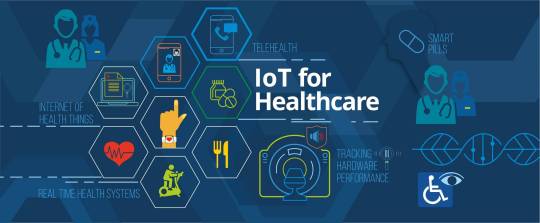
In today's rapidly evolving healthcare landscape, the concept of Embracing Technology has become more than just a trend—it's a necessity. As healthcare providers strive to deliver optimal care and improve patient outcomes, the integration of cutting-edge technologies has emerged as a pivotal solution. In this blog post, we'll explore how various technological advancements, from Electronic Health Records (EHR) to Telemedicine, are revolutionizing the way healthcare is delivered and experienced.
Electronic Health Records (EHR) have transformed the way medical information is stored, accessed, and shared. By digitizing patient records, healthcare providers can streamline administrative processes, enhance communication between care teams, and ultimately improve the quality of patient care. With the click of a button, healthcare professionals can access comprehensive patient histories, medication lists, and diagnostic reports, enabling more informed decision-making and personalized treatment plans.
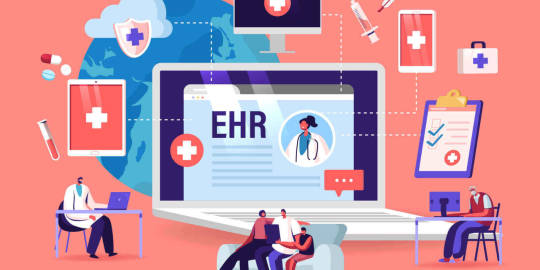
Telemedicine represents another groundbreaking innovation in modern healthcare. Through the use of telecommunications technology, patients can now access medical care remotely, breaking down barriers to healthcare access and improving convenience for both patients and providers. Whether it's a virtual consultation with a primary care physician or a remote monitoring session for chronic disease management, telemedicine offers unparalleled flexibility and accessibility in healthcare delivery.
Medical Imaging Systems have also played a crucial role in advancing diagnostic capabilities and improving patient care. From high-resolution X-rays to sophisticated MRI machines, these imaging technologies provide healthcare providers with detailed insights into patients' internal structures and conditions, facilitating accurate diagnoses and treatment planning. With the latest advancements in medical imaging, healthcare professionals can detect abnormalities earlier, leading to better outcomes and improved patient satisfaction.
Automated Patient Management systems have emerged as a game-changer in healthcare administration. By automating routine tasks such as appointment scheduling, medication reminders, and billing processes, these systems help streamline workflows, reduce administrative burdens, and improve overall efficiency. With automated patient management, healthcare providers can focus more time and attention on delivering quality care and building meaningful patient relationships.
The Internet of Things (IoT) is reshaping the healthcare industry by connecting medical devices, wearables, and other equipment to the internet, allowing for real-time data collection, monitoring, and analysis. From wearable fitness trackers that monitor vital signs to smart hospital beds that adjust to patient movements, IoT technologies are revolutionizing patient care and safety. By harnessing the power of IoT, healthcare providers can proactively identify health issues, track treatment progress, and intervene quickly when necessary, ultimately enhancing patient outcomes and satisfaction.
In conclusion, Embracing Technology is essential for modern healthcare providers seeking to deliver high-quality, patient-centered care in today's fast-paced world. By incorporating innovations such as Electronic Health Records (EHR), Telemedicine, Medical Imaging Systems, Automated Patient Management, and the Internet of Things (IoT) into their practice, healthcare organizations can improve efficiency, accessibility, and outcomes, ultimately creating a more seamless and satisfying healthcare experience for patients and providers alike.
#Electronic Health Records (EHR)#Telemedicine#Medical Imaging Systems#Automated Patient Management#Internet of Things (IoT) in Healthcare
0 notes
Text
Mastering Electronic Medical Records: A Guide to Optimizing Your Practice
In the modern landscape of healthcare, the transition to electronic medical records (EMR) is not just a trend but a necessity. As electronic medical records consultants, we understand the challenges and opportunities that come with this transition. Whether you're a small clinic or a large hospital, optimizing your electronic medical record system is crucial for enhancing patient care, streamlining workflows, and maximizing efficiency. In this comprehensive guide, we'll delve into the intricacies of electronic medical record consulting services and how they can benefit your practice.
Understanding the Role of an EHR Consultant in Coeur d'Alene
When it comes to implementing or upgrading your electronic medical record system, the expertise of an EHR consultant Coeur D Alene can make all the difference. Our team of seasoned professionals specializes in navigating the complex landscape of electronic medical records, ensuring a seamless transition that aligns with your practice's unique needs and objectives. From assessing your current infrastructure to training your staff and optimizing workflows, our EHR consultants are dedicated to empowering your practice for success.
The Value of Electronic Medical Record Consulting Services
Effective utilization of electronic medical records requires more than just software installation. It requires a strategic approach that addresses the specific needs and challenges of your practice. That's where electronic medical record consulting services come into play. Our team works closely with you to evaluate your current processes, identify areas for improvement, and implement tailored solutions that enhance efficiency and productivity. Whether you're looking to streamline appointment scheduling, improve patient engagement, or enhance data security, our electronic medical record consultants have the expertise to help you achieve your goals.
Streamlining Workflows and Enhancing Patient Care
One of the primary benefits of electronic medical records is their ability to streamline workflows and enhance patient care. By digitizing patient records, medical histories, and treatment plans, electronic medical record systems enable healthcare providers to access critical information quickly and efficiently. This not only saves time but also reduces the risk of errors and improves the overall quality of care. With the guidance of our electronic medical record consultants, you can optimize your system to ensure seamless integration into your daily workflows, allowing you to focus on what matters most – providing exceptional care to your patients.
Maximizing Efficiency and Productivity
In addition to improving patient care, medical practice electronic health records services can significantly enhance the efficiency and productivity of your practice. By automating routine tasks, such as appointment reminders, prescription refills, and billing processes, electronic medical record systems free up valuable time for healthcare providers and staff. Our electronic medical record consulting services are designed to help you leverage the full potential of your system, enabling you to maximize efficiency, reduce administrative burden, and increase overall productivity.
Ensuring Compliance and Data Security
With the increasing emphasis on data security and patient privacy, ensuring compliance with regulatory requirements is more important than ever. Our electronic medical record consultants are well-versed in the latest industry standards and regulations, including HIPAA and HITECH, and can help you implement robust security measures to protect sensitive patient information. From conducting risk assessments to implementing encryption protocols, we work tirelessly to safeguard your practice against potential threats and vulnerabilities, providing you with peace of mind knowing that your data is secure.
#electronic medical records consultants#ehr consultant Coeur d Alene#electronic medical record consulting services#medical practice electronic health records services
0 notes
Text
Mastering Hospital Information Management: Best Practices and Strategies
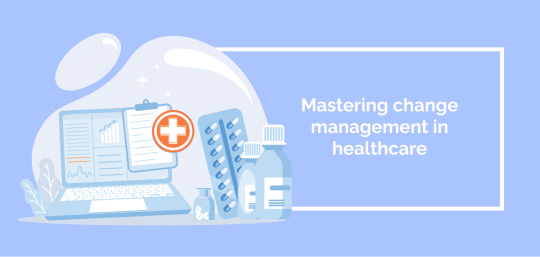
In the realm of modern healthcare, Hospital Information Management (HIM) serves as the backbone for efficient operations and quality patient care. With the proliferation of digital technologies, HIM encompasses a wide array of tools and strategies aimed at optimizing various aspects of healthcare delivery. Let's explore some key components of HIM and delve into best practices and strategies for mastering them.
Navigating the Landscape of Hospital Information Management
Hospital Information Management encompasses the systematic organization and utilization of data within healthcare settings. At its core, HIM involves the collection, storage, retrieval, and exchange of patient information to support clinical decision-making and administrative processes. From Electronic Health Records (EHR) to Health Information Exchange (HIE), HIM encompasses a spectrum of technologies and methodologies aimed at enhancing healthcare delivery.
Unlocking the Potential of Electronic Health Records (EHR)
In the digital age, Electronic Health Records (EHRs) have revolutionized the way patient information is documented and managed. EHR systems enable healthcare providers to access comprehensive patient records electronically, facilitating seamless communication and collaboration among care teams. By leveraging EHRs, healthcare organizations can streamline workflows, enhance clinical efficiency, and improve patient safety through timely access to accurate medical information.
Enhancing Collaboration through Health Information Exchange (HIE)
Health Information Exchange (HIE) plays a vital role in facilitating the secure sharing of patient information across disparate healthcare settings. By establishing interoperable networks, HIE enables healthcare providers to access critical patient data from various sources, including hospitals, clinics, and laboratories. This seamless exchange of information promotes care coordination, reduces duplicative testing, and improves clinical decision-making.
Empowering Clinical Decision-Making with Clinical Decision Support Systems (CDSS)
Clinical Decision Support Systems (CDSS) leverage data analytics and medical knowledge to provide actionable insights at the point of care. These systems analyze patient data and medical literature to offer evidence-based recommendations to healthcare providers. By integrating CDSS into EHRs, healthcare organizations can enhance clinical workflows, reduce medical errors, and improve patient outcomes through personalized and timely interventions.
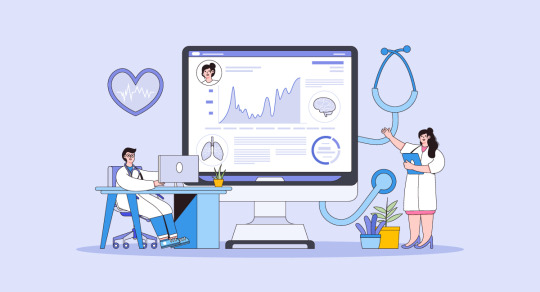
Leveraging Data Insights with Healthcare Analytics
In an era of data-driven healthcare, healthcare analytics play a crucial role in deriving actionable insights from vast amounts of clinical and administrative data. From predictive modeling for disease management to financial forecasting for revenue optimization, analytics empower healthcare organizations to make informed decisions. By investing in data governance and analytics infrastructure, healthcare providers can harness the power of data to drive continuous improvement and innovation.
Optimizing Financial Performance through Revenue Cycle Management
Revenue Cycle Management (RCM) encompasses the processes involved in managing claims, payments, and revenue generation within healthcare organizations. By optimizing RCM processes and leveraging technology and automation, healthcare providers can ensure timely reimbursement and mitigate revenue leakage. Effective staff training and continuous process improvement are essential for maintaining RCM efficiency and financial sustainability.
In conclusion, mastering Hospital Information Management requires a holistic approach that integrates EHRs, HIE, CDSS, healthcare analytics, and revenue cycle management into the fabric of healthcare delivery. By implementing best practices and strategic initiatives in these areas, healthcare organizations can achieve operational excellence, improve patient outcomes, and drive innovation in healthcare delivery.
#Electronic Health Records (EHR)#Health Information Exchange (HIE)#Clinical Decision Support Systems (CDSS)#Healthcare Analytics#Revenue Cycle Management
0 notes
Text
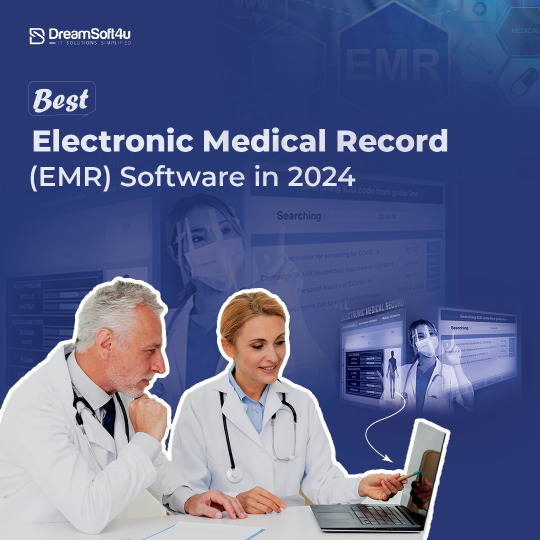
A business is only as good as its record-keeping system. With the right system in place, a business can turn its data into gold. Especially in today’s day and age where everything we do is being recorded, stored, and managed. Here we'll focus on a particular medical record system- Electronic Medical Records (also widely referred to as EMRs). We will discuss in detail what is Electronic Medical Record Software, what are its business benefits, and the top EMR software in 2024.
0 notes
Text
PrideHealth - Comprehensive Healthcare Management Solution
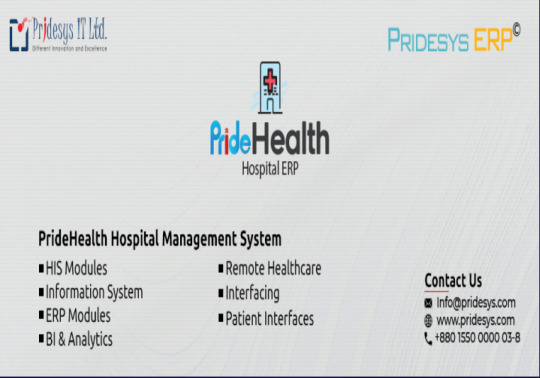
PrideHealth, a product of Pridesys, revolutionizes operational efficiency and cost reduction in hospitals and healthcare organizations. By streamlining internal information flow and communication, PrideHealth ensures accurate patient care delivery. Renowned for its scalability, security, and customizable features, PrideHealth offers comprehensive solutions for various hospital activities including inpatient and outpatient management, billing, testing, bed management, and HR management. It simplifies reporting by providing daily, weekly, monthly, and yearly insights tailored to specific requirements. With hundreds of automation features, PrideHealth offers unlimited user accounts, trouble-free appointment booking, medication tracking, dynamic dashboards, and comprehensive records management for patients, staff, diagnostics, and more. Its user-friendly interface supports efficient doctor and patient management, prescription and diagnostic report generation, billing, pharmacy management, and inventory control. PrideHealth improves efficiency, reduces errors, enhances patient care, and ensures data security, making it an indispensable tool for modern healthcare administration.
For more Information visit: https://pridesys.com/product/pridehealth/
Contact us:
E-mail: [email protected];
Phone: +8801550000003-8, 01550000035
#Healthcare management solution#Patient records management#Appointment scheduling software#Medical billing system#Integrated reporting tool#Healthcare administration software#Electronic health records (EHR) system#Patient care optimization#Medical practice efficiency#Healthcare software solution
0 notes
Text
https://ehnote.com/newsroom/ophthalmology-emr-and-asc-system
#practice management software#ophthalmology#emr#healthcare crm#ehr#medical practice management software#healthcare it solutions#ophthalmology ehr emr software#dental ehr emr software#ehr software#trending#viral#electronic health record
0 notes
Text
#Electronic Health Records (EHR) Market#Electronic Health Records (EHR) Market Trends#Electronic Health Records (EHR) Market Growth#Electronic Health Records (EHR) Market Industry#Electronic Health Records (EHR) Market Research#Electronic Health Records (EHRz) Market Report
0 notes
Text
Implementing the EHR system is the major part that impacts the clinical workflows and practice operations. Careful EHR requirement gathering in family medicine care lays the groundwork for EHR adoption success.
0 notes
Text
Personalized Treatment Plans through Data from Wearable Health Devices
Digital Health: Transforming Modern Healthcare
Understanding Digital Health
Digital health signifies a groundbreaking convergence of technology with the healthcare sector. Utilizing digital tools, the medical field is undergoing a significant transformation in the way care is delivered, accessed, and managed. This shift encompasses telehealth, wearable technology, mobile health applications, and electronic health records (EHRs), all aimed at enhancing patient outcomes, increasing efficiency, and lowering costs.
Key Elements of Digital Health
Telehealth: Connecting Patients and Providers
Telehealth is a cornerstone of digital health, utilizing telecommunications technology to provide clinical services from a distance. This includes video consultations, remote monitoring, and virtual follow-ups. The advantages are substantial:
Accessibility: Quality healthcare reaches patients in remote or underserved areas without the need for travel.
Convenience: Reduces the necessity for in-person visits, saving time and resources.
Continuity of Care: Facilitates ongoing management of chronic conditions.
Wearable Technology: Real-Time Health Monitoring
Wearable technology such as fitness trackers, smartwatches, and biosensors play a critical role in monitoring various health metrics. These devices gather data on heart rate, physical activity, sleep patterns, and more, which is essential for:
Preventive Care: Detecting potential health issues early.
Personalized Treatment: Customizing treatments based on individual health data.
Patient Engagement: Encouraging proactive health management.
Mobile Health Applications: Health Management Simplified
Mobile health apps provide functionalities ranging from medication reminders to diet tracking and mental health support. They empower users with easy access to health information and management tools. Key benefits include:
Empowerment: Puts users in control of their health information and decisions.
Education: Offers access to valuable health resources and information.
Support: Facilitates communication with healthcare providers and support networks.
Electronic Health Records (EHRs): Consolidating Patient Information
EHRs are digital versions of patient charts and are fundamental to digital health. They offer comprehensive and accurate patient information accessible to authorized healthcare providers. The benefits include:
Care Coordination: Ensures all healthcare providers have access to the same information.
Accuracy: Reduces errors associated with manual record-keeping.
Efficiency: Streamlines workflows and enhances patient care management.
The Impact of Digital Health on Healthcare
Enhancing Patient Outcomes
Digital health technologies significantly improve patient outcomes. By enabling remote monitoring and early detection of health issues, these tools facilitate preventive care and timely interventions. Patients with chronic conditions benefit greatly from continuous monitoring and personalized treatment plans.
Boosting Healthcare Efficiency
The integration of digital health solutions enhances operational efficiency within healthcare systems. Telehealth, for instance, reduces the need for physical infrastructure, while EHRs streamline administrative processes, leading to cost savings and more efficient resource use.
Reducing Healthcare Costs
Innovations in digital health help reduce healthcare costs by minimizing in-person visits, decreasing hospital readmissions, and preventing the progression of chronic diseases through early intervention. Additionally, automated systems and telehealth services lessen the burden on healthcare providers, leading to more cost-effective care delivery.
Challenges and Solutions in Digital Health Adoption
Ensuring Data Privacy and Security
A primary concern in digital health is the privacy and security of patient data. Healthcare providers must ensure that digital systems comply with regulations such as HIPAA (Health Insurance Portability and Accountability Act) and employ robust cybersecurity measures to protect sensitive information.
Achieving Integration and Interoperability
Integrating digital health technologies into existing healthcare systems can be challenging. Ensuring interoperability between various digital tools and traditional systems is crucial for seamless data sharing and efficient care coordination. Solutions include adopting standardized protocols and investing in interoperable systems.
Promoting User Adoption and Training
Effective use of digital health technologies requires that both healthcare providers and patients are willing and able to use them. Comprehensive training and support systems are necessary to ensure users are comfortable and proficient with new technologies. Educational initiatives and user-friendly interfaces can significantly improve adoption rates.
The Future of Digital Health
The future of digital health looks promising, with ongoing advancements in artificial intelligence (AI), machine learning, and blockchain technology set to further revolutionize healthcare. AI and machine learning can enhance diagnostic accuracy and treatment personalization, while blockchain technology can ensure secure and transparent health data management.
Artificial Intelligence and Machine Learning
AI and machine learning algorithms can analyze vast amounts of data to identify patterns and predict health outcomes, leading to more accurate diagnoses and personalized treatment plans. These technologies have the potential to revolutionize areas such as radiology, pathology, and drug discovery.
Blockchain Technology
Blockchain offers a decentralized and secure method for managing health records, ensuring data integrity and privacy. By providing a transparent ledger of all transactions, blockchain can prevent data breaches and enhance trust in digital health systems.
Conclusion
Digital health is reshaping the healthcare landscape, offering unprecedented opportunities to improve patient care, enhance efficiency, and reduce costs. As technology continues to evolve, the integration of digital tools in healthcare will become increasingly essential. Embracing these innovations requires overcoming challenges related to data security, system integration, and user adoption. However, the potential benefits make it a worthwhile endeavor, promising a future where healthcare is more accessible, efficient, and personalized.
#Digital Health#Telemedicine#Wearable Devices#Mobile Health Apps#Electronic Health Records#Healthcare Technology#Patient Outcomes#Healthcare Efficiency#Preventive Healthcare#Personalized Medicine#Health Data Security#AI in Healthcare#Blockchain in Healthcare#Future of Healthcare#Health Monitoring#Remote Healthcare#Digital Health Solutions#Health Technology Integration#Healthcare Cost Reduction#EHR Systems
0 notes